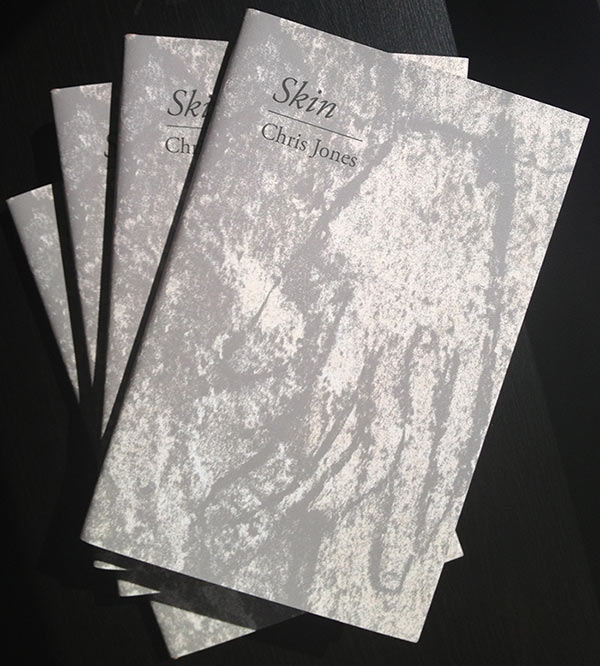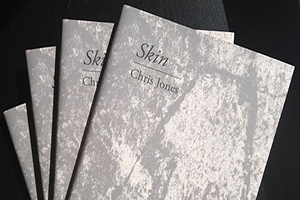
After the release of his prestigious poetry collection, Skin, Chris Jones has firmly carved his name onto the growing list of established English poets. On the eve of his performance at the Wordlife 9th Birthday event, the Sheffield Hallam Creative Writing lecturer sits down and shares some of his collated wisdoms…
With the recent release of Skin, your newest poetry collection, how would you describe the evolution of your writing over your career?
I think I’ve spent a lot of my career writing about masculinity, through various guises and subject matter. I spent a really important part of my career working in prison, which surfaces in my first official book, The Safe House, and Skin is a kind of development of that. Some of the crucial poems in the book look at two men that debate with each other over certain issues, more so alpha male masculinity. There is a balance, however, as I explore the sympathetic, encompassing side to it also, such as being a father, for instance.
What’s it like working with the Sheffield publishing house Longbarrow Press?
I’ve known Brian, who runs Longbarrow Press, for a while, and he’s been a friend of mine for a long time. He started publishing around 9-10 years ago and he’s a great designer. Everything I do with Longbarrow is a collaboration with Brian. We sit down with each other and we’ll work together, and he gives his input on the images, front cover and all that stuff. The process comes with much more freedom than it would with a major publisher, and because of that the quality of the outcome is fantastic. We also do podcasts and essays together discussing the book, or certain buildings and inspirations behind it. It’s a series of different platforms that’s offered, not just the book, so it works really well.
What effect does your teaching background have on your writing?
I think it took me quite a while to work out how to write well. I was always decent at it, but it certainly took me a while to work out the recipe, or some of the recipes, as there are different ways of approaching it. When I’m teaching Creative Writing, it’s very much about giving the students ways into writing, showing them how some things work and some things don’t work, and how reading other people’s work is important. I’ve realised how it’s all about having fun, and playing, and essentially being creative.
Who is your biggest inspiration outside the writing world?
That’s a tricky one really. In a sort of general sense it’s my family, being a husband and a father. I also like sport. I’ve a lot of time for people that do something well – Andy Murray, for instance. Football and rugby are very difficult, but they make it look easy. They’ve got to where they are because they’ve honed their technique and they’ve had to battle. I also like walking. I’m going on a sabbatical soon so I’m going to do a lot more. I’m so lucky to live in a place like Sheffield really, with the city on the one hand and then the countryside on the other.
If you could only be remembered by one piece of your own writing, which would it be and why?
I’ve just written a short story in the form of a poem, called ‘Every Time We Met’, which I wrote over two years. I actually planned and plotted it out like writing a novel, and eventually fitted it all together. I haven’t got that much feedback on it really, but that’s definitely something I’m proud of, because of what sort of piece it is, and what it does.
What’s next?
As I mentioned I’m going on a sabbatical, so I’ve got time to write. So I think I’m going to write a verse novel about Sheffield’s electricity being knocked out, and the city’s just plunged into darkness. I’m using that as a means to get people telling stories to each other, getting people communicating verbally, rather than staring at their phone or watching TV. It’s going to involve one character walking across the city, possibly linking in my own walking through the countryside.
What key piece of advice would you offer aspiring upcoming writers?
Just keep writing. The thing is, to be a writer you have to write. You’re only a writer when you write. You just have to keep going. Be open to influences as well. Books, films, popular culture, media – just absorb it all. Take from it what you want and use it in a positive way for your own writing. There’s no point in me being prescriptive and saying do this or this. Just make sure you enjoy it.
Interview by Charlie Sellings
